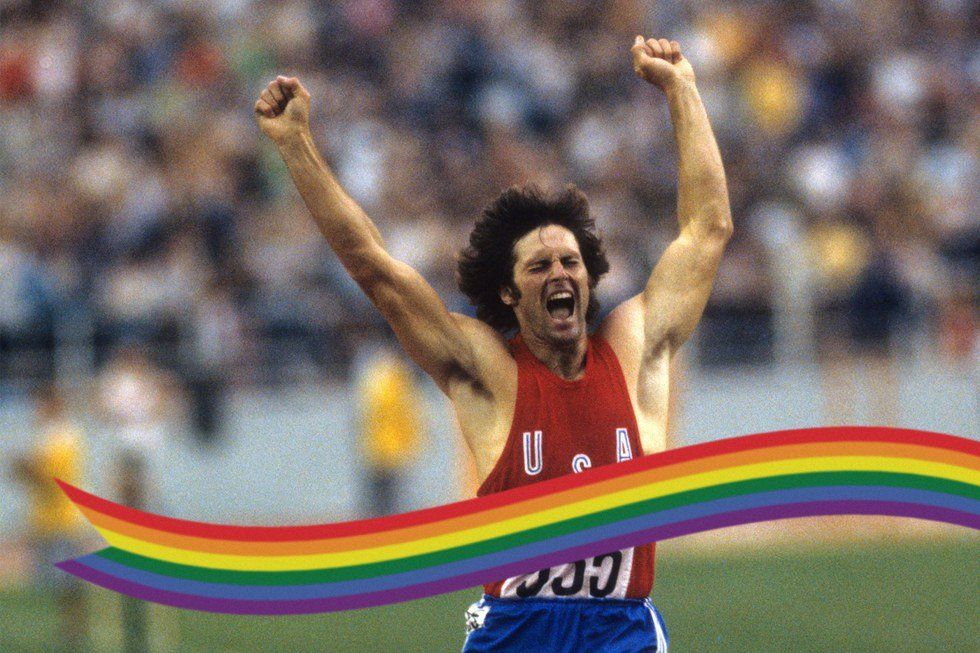This year's Olympic games are full of exciting firsts. From the first Olympic Refugee team to the first U.S. Olympian to wear a hijab during her competition, this Olympic season has proven to be very iconic and worthy of remembrance. But there is one first which particularly speaks volumes about how far the Olympics have come, and about international athletic culture in general. This is the first Olympic games in which pre-surgery transgender athletes are eligible to compete.
Transgender athletes were first allowed into the games by the International Olympic Committee (IOC) in 2004. This ruling went into effect in time for the Athens games, but had very strict restrictions on how trans athletes could compete as the appropriate gender. It required that any transgender athlete wishing to compete had undergone complete sex reassignment surgery, that they had undergone hormone therapy for a sufficient time to negate any athletic advantage that may be afforded by having hormone levels more similar to that of their sex assigned at birth, and that their gender was recognized by competent authority and reflected in their legal documents. This opened the door for transgender athletes to enter the games as they had previously been restricted from doing so for various reasons. However, this did not completely fix the issue. This still forbade any pre-surgery transgender athletes from competing in the Olympics, as well as any athlete who lived in a country in which they could not get legal recognition of their gender despite medical transition.
In January of this year, the IOC announced changes to the eligibility restrictions on transgender athletes. Under the new ruling, athletes who have transitioned female-to-male may compete as males with no restrictions while athletes who have transitioned male-to-female may compete with the restriction that their testosterone level must lie at or below 10 nanomols per liter for at least a year prior to the competition and have declared that their gender identity is female. There is no longer any requirement for surgical transition or for legal documentation of gender. The restriction on testosterone levels in female transgender athletes exist to assure that there is no unfair athletic advantage held by those women as testosterone can increase muscle strength and volume as well as aiding in recovery and several other aspects of athletic training. The same ruling announced a change to a 2012 ruling which stated that women who were found to have hyperandrogenism - testosterone levels above the lower threshold of male testosterone levels - would be ineligible to compete. The new ruling states that they may be allowed to compete as men if this is the case.
This ruling is an enormous step for transgender athletes. A demographic which has largely been barred from competing in many major athletic endeavors is now welcome to come as they are (for the most part) and compete in the open. The ruling was largely made possible by one man, Chris Mosier. When Mosier qualified for the U.S. national team in the duathalon, he challenged the IOC's 2004 ruling which pushed the IOC to make the new ruling that was made this year. Mosier is also the first openly transgender athlete on Team USA.
Why is this important? Gender and sex are tricky things to navigate in the world of athletics. As things like power, strength, and speed are heavily affected by sex hormones such as testosterone, being transgender can put you in a sticky situation. Prior to Mosier's coming out, the only major athlete that young transgender athletes could look to as a role model is Caitlyn Jenner, and as she did not come out as transgender or start her transition until after her athletic career was finished, she hardly serves as the best encouragement for athletes who are already aware of their trans identities. Mosier serves as the first strong role model for transgender athletes in the U.S. and around the world. He pushed himself just the same as any other athlete. He qualified for the national team and proved that he was just as capable as any other athlete (and more capable than most). He then went on to challenge for the right to demonstrate these same things at the international level. He proved that transgender athletes are just as capable, just as resilient, and just as worthy of a chance to compete as cisgender athletes. Nike has now featured Mosier in an ad which additionally makes him the first transgender athlete to be featured in a Nike ad.
These all provide a huge amount of visibility to transgender athletes who have largely been invisible in the world of sports. This newfound visibility combined with the opening of the Olympics to more transgender athletes presents a whole new world of opportunities to young athletes. Like these strong men and women, the Olympics are making a transition, They are transitioning to become better, more accepting, more authentic, and more of what they should be. The Olympics are meant to bring people from around the world together, to foster love and peace, and to promote acceptance of all people. These happenings will help the Olympics to do so for generations to come.





















